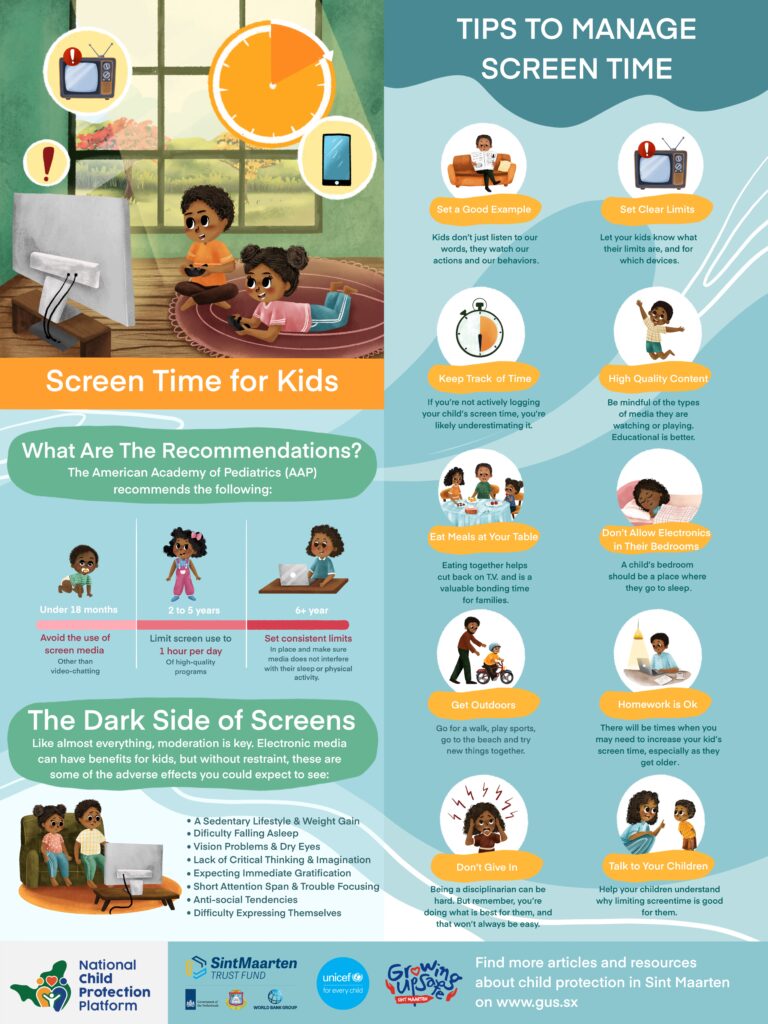“When we think of the future, are screens going away? No. Perhaps we need to keep this in mind when discussing how much screen time is healthy for a child,”
states Neuropsychologist Drs Stephen Ebecilio.

Stephen grew up in Sint Maarten, later moving to Curacao. While studying in the Netherlands, he developed a passion for neurology and specialised in rehabilitation and neuropsychology for children.
One of his continued interests includes neuro-developmental issues: “Once you understand what is going on in the brain, you can work towards a solution.” With over two decades of experience, Stephen continues to treat children and adults in Curacao, St. Eustatius, and Sint Maarten.”
Neurodevelopmental Issues
“With children, the most referrals I receive are due to the child not adjusting well in school either academically, behaviourally, or socially. Once we understand the problem, we can help the child, parents, teachers, and their environment adjust. For example, if the child is on the autism spectrum (on a high-functioning level), the people around them need to understand how to approach the child. A simple adjustment can make a big improvement,” explains Stephen.
In Stephen’s work, as a neuropsychologist, he assesses if the challenges or symptoms that a client is experiencing are due to a social-emotional problem, perhaps due to a traumatic event, or a neurodevelopmental issue with which children are born with. Stephen: “With a neurodevelopmental issue, you can apply talk therapy for years, but their behaviour will not change – you need to understand the specific interventions you can take. For example, for children born with ADHD, science shows that you cannot punish them to correct their behaviour. Neurodevelopmental issues can also be intertwined with social-emotional issues.”
ADHD or Screen time
In 2023, technology and screen time have become an integral part of our lives. However, the negative impact of screen time is more and more frequently brought up by parents and professionals working with children. Several years ago, Stephen provided several workshops in collaboration with the Department of Youth, Sint Maarten, on child developmental delays – and one of the topics discussed was screen time and how it affects children’s development.
Impulsiveness, problems focusing, restlessness, frustration, etc., can be a sign of neuro-developmental issues that a child is born with, such as ADHD. However, Stephen notes that research is showing that the same symptoms are now flagged as a possible effect of too much screen time at a later age: “While your IQ stays the same, screen time affects certain areas of your development, especially in the frontal lobe of your brain, which controls your executive functions. It can affect your ability to concentrate, decision-making and make you agitated.
Use or Lose
According to Stephen, the most affected age group are children 0 to 3 years old and teenagers between 11 and 17 years old: “During these important parts of your development, your brain is ‘neuron pruning’. The synapses our neurons communicate are either strengthened or lost, depending on how much we use them. This process can be affected by too much screen time. Screens provide content such as images and information that does not require the brain to ‘work as hard’ as other activities such as making art, socialising, playing sports, etc.
The Centre for Disease Control and Prevention (CDC) reports the average daily hours by age group: 8-10 years old: Six hours, 11-14 years old: Nine hours and 15-18 years old: Seven and 1/2 hours. Aside from affecting your neurodevelopment, the more time spent on screens, the less time children socialise or move – affecting relationships and their health. “All of these repercussions also are linked to anxiety and depression,” Stephen adds.
Harmful Attachment
Stephen also shares that screen addiction is apparent in all age groups. Still, teenagers and children are most affected: “Similar to drugs, screen time releases dopamine in your brain and creates a pleasure/reward cycle. This creates a harmful attachment to their devices. I have seen children throw aggressive temper tantrums because their phone or tablet was taken away.
“The Diagnostic and Statistical Manual of Mental Disorders (DSM), widely used by clinicians and psychiatrists to diagnose psychiatric illnesses, describes the internet addiction disorder. While it is not yet an official diagnosis, it is now a prominent area of interest. They compare it to any other addiction, but what distinguishes it from other addictions is that it becomes very hard to treat as soon as the ‘substance’ becomes part of your life. This is because it is like a food addiction; it’s part of your daily life. We all need screens today to participate in school, work, and social norms.”
Realistic Solutions
So what is the answer if children need screens to participate in modern society and screen time is harmful? As with many things in life, Stephen says: “balance”.
He advises: “Parents should discuss ways to mitigate and replace screen time in realistic ways. Set the right example as parents, if you are on your phone all the time, it will be harder to explain to your children that screens are harmful. If your child can watch an iPad or TV for an hour a day, ensure it’s something educational and an activity you do together. If your teenager needs to do homework on a computer, that is okay, but set clear limits on how much time they can spend playing video games or watching screens for entertainment. Explain to your children why you are limiting screen time so that they are also more aware of the effects.”
Stephen does wonder what the future holds concerning screen time, despite the growing research on the negative effects: “We also must consider the future and our evolution. Do we think screens are going away? Probably not. We will more likely get exposed to more and more screen time. If we cannot eliminate screen time anymore, we will have to adjust the guidelines and prepare to support a society that will have changed neurological systems and related symptoms.”




